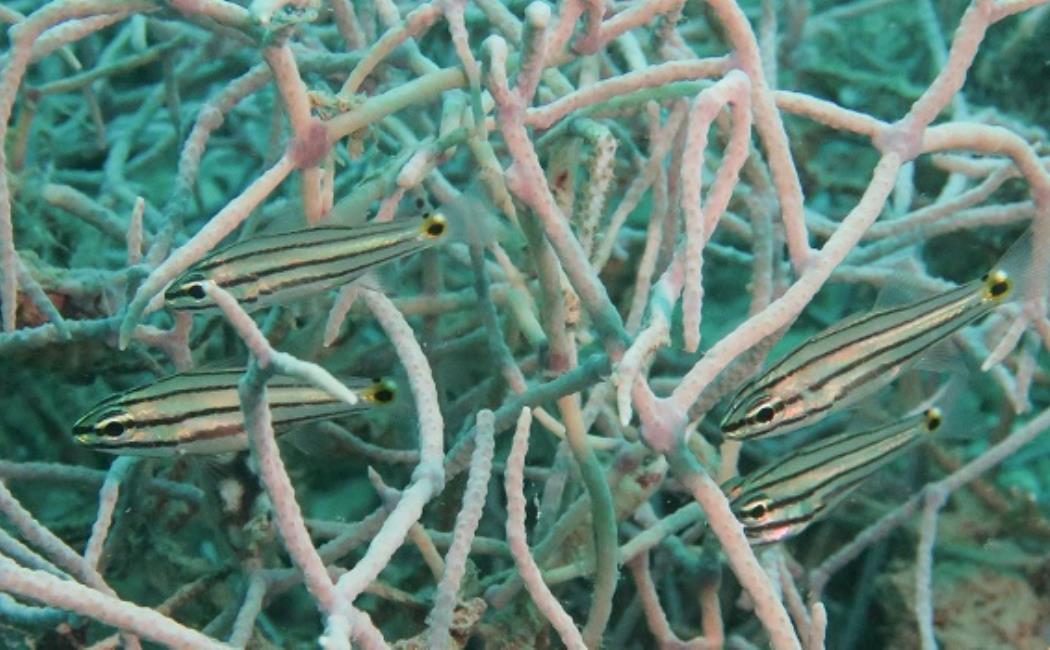
Fish flip a unique genetic switch in warming seas
22 April, 2020
Five Great Barrier Reef fish species each activated different genetic responses to a marine heatwave in the Australian summer of 2015-16. This finding could help further understanding of climate change impacts on wild fish distributions.
“Scientists have extensively studied heatwave impacts on coral reefs because they are very sensitive to temperature and can easily bleach in warming conditions,” says former KAUST postdoc Moisés Bernal, now an assistant professor at Auburn University, USA. “Previous studies have measured the effects of heatwaves on fish as a side effect of coral bleaching. Our study is novel in that it applies molecular techniques to directly understand the mechanisms used by different fish to cope with elevated temperatures.”
Click here to read the full story
Image: Five-lined cardinalfish living in coral reefs around Lizard Island in Australia had the smallest number of differentially expressed genes over the course of a 2015-16 marine heatwave compared to four other fish species.
© 2020 Moisés Bernal